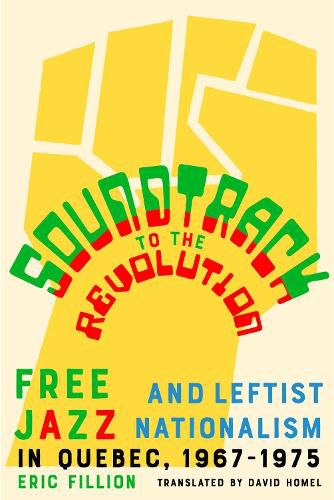Readings Newsletter
Become a Readings Member to make your shopping experience even easier.
Sign in or sign up for free!
You’re not far away from qualifying for FREE standard shipping within Australia
You’ve qualified for FREE standard shipping within Australia
The cart is loading…






In telling the story of Jazz Libre, Soundtrack to the Revolution reveals the meaningful role that the art of spontaneity played in the turbulent 1960s and 1970s. It traces the path taken by Jazz Libre- a collective of improvisers who embraced free jazz to help legitimize the efforts of the Quebec left to situate its nationalist aspirations within global anti-imperialist and anti-capitalist movements. Charbonneau and his bandmates strongly believed that collective improvisation could inspire resistance and hope by fostering communication, collaboration, initiative, trust, and self-criticism- but also a disposition to take risks as well as a willingness to think creatively and make decisions on the spur of the moment. Jazz Libre' s fate was, as a result, irreversibly tied to the leftist independence movement- a hodgepodge of groups in search of possible futures during these pivotal decades.
$9.00 standard shipping within Australia
FREE standard shipping within Australia for orders over $100.00
Express & International shipping calculated at checkout
In telling the story of Jazz Libre, Soundtrack to the Revolution reveals the meaningful role that the art of spontaneity played in the turbulent 1960s and 1970s. It traces the path taken by Jazz Libre- a collective of improvisers who embraced free jazz to help legitimize the efforts of the Quebec left to situate its nationalist aspirations within global anti-imperialist and anti-capitalist movements. Charbonneau and his bandmates strongly believed that collective improvisation could inspire resistance and hope by fostering communication, collaboration, initiative, trust, and self-criticism- but also a disposition to take risks as well as a willingness to think creatively and make decisions on the spur of the moment. Jazz Libre' s fate was, as a result, irreversibly tied to the leftist independence movement- a hodgepodge of groups in search of possible futures during these pivotal decades.